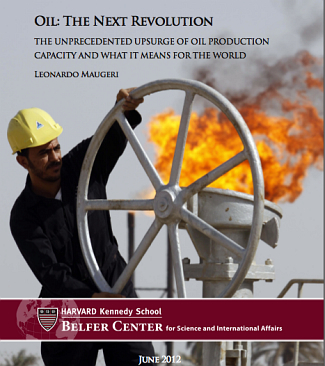

Published by Harvard University
Whatever the future, the analysis reported in this paper reveals some important points:
• Oil is not in short supply. From a purely physical point of view, there are huge volumes of conventional and unconventional oils still to be developed, with no “peak-oil” in sight. The real problems concerning future oil production are above the surface, not beneath it, and relate to political decisions and geopolitical instability. .
• The shale/tight oil boom in the United States is not a temporary bubble, but the most important revolution in the oil sector in decades. It will probably trigger worldwide emulation over the next decades that might bear surprising results – given the fact that most shale/tight oil resources in the world are still unknown and untapped. What’s more, the application of shale extraction key-technologies (horizontal drilling and hydraulic fracturing) to conventional oilfield could dramatically increase world’s oil production.
• The age of “cheap oil”‡is probably behind us, but it is still uncertain what the future level of oil prices might be. Technology may turn today’s expensive oil into tomorrow’s cheap oil.
